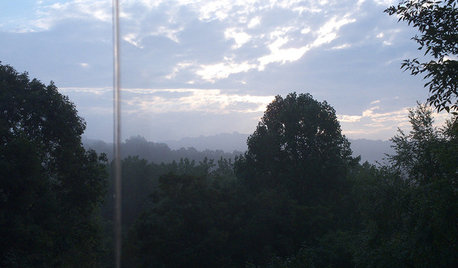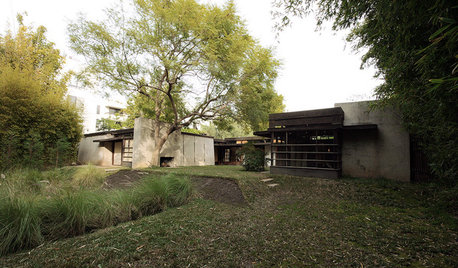Permaculture Design Classes/Courses
TheTick
19 years ago
Related Stories

BATHROOM DESIGNA Crash Course in Bathroom Faucet Finishes
Learn the pros and cons of 9 popular faucet finishes
Full Story
CITY GUIDESHouzz Travel Guide: Atlanta for Design Lovers
You'll find world-class museums, restaurants, hotels and shops in Georgia's woodsy, welcoming and charming capital
Full Story
GARDENING GUIDESGreat Design Plant: Eastern Redbud
With romantic pink blooms and heart-shape leaves, this ornamental tree has been inspiring affection since the days of the founding fathers
Full Story
DECORATING GUIDESDesign Tastemaker: Sian Zeng's Magical Prints
Enchanting magnetic wallpaper, surreal cushions and more add an element of fantasy to indoor spaces
Full Story
HOUZZ TOURSMy Houzz: Polished Urban Sanctuary in Toronto
Suited perfectly to its working-class downtown neighborhood, an engineer's modern home is an airy and spacious retreat
Full Story
ARCHITECTURE4 Things a Hurricane Teaches You About Good Design
When the power goes out, a home's design can be as important as packaged food and a hand-crank radio. See how from a firsthand account
Full Story
DECORATING STYLESCity View: Dallas Design Corrals a Range of Styles
All antlers and cowhide? Hardly. See the real styles and trends, and the misconceptions, about design in this Lone Star State hub
Full Story
ARCHITECTUREDesign Workshop: The Open-Concept Bathroom
Consider these ideas for balancing privacy with openness in an en suite bathroom
Full Story
GREAT DESIGNERSDesign Icons: Rudolph M. Schindler, Evolving Architect-Artist
Breaking ground with collective dwellings and indoor-outdoor living, Schindler had a distinctive style that influenced architects to come
Full StorySponsored







overrocked
gardenlen
Related Professionals
Simpsonville Landscape Architects & Landscape Designers · Baltimore Landscape Architects & Landscape Designers · Jennings Landscape Architects & Landscape Designers · Signal Hill Landscape Architects & Landscape Designers · Kahului Landscape Contractors · Munster Landscape Contractors · New Braunfels Landscape Contractors · Painesville Landscape Contractors · San Pablo Landscape Contractors · Camp Springs Siding & Exteriors · Riverside Siding & Exteriors · South Laurel Siding & Exteriors · Cerritos Solar Energy Systems · Norton Solar Energy Systems · Pacific Grove Solar Energy SystemsBelgianpup
TheTickOriginal Author
garnetmoth
SofiasfarmNC
eden_on_earth
joel_bc
greenwitch